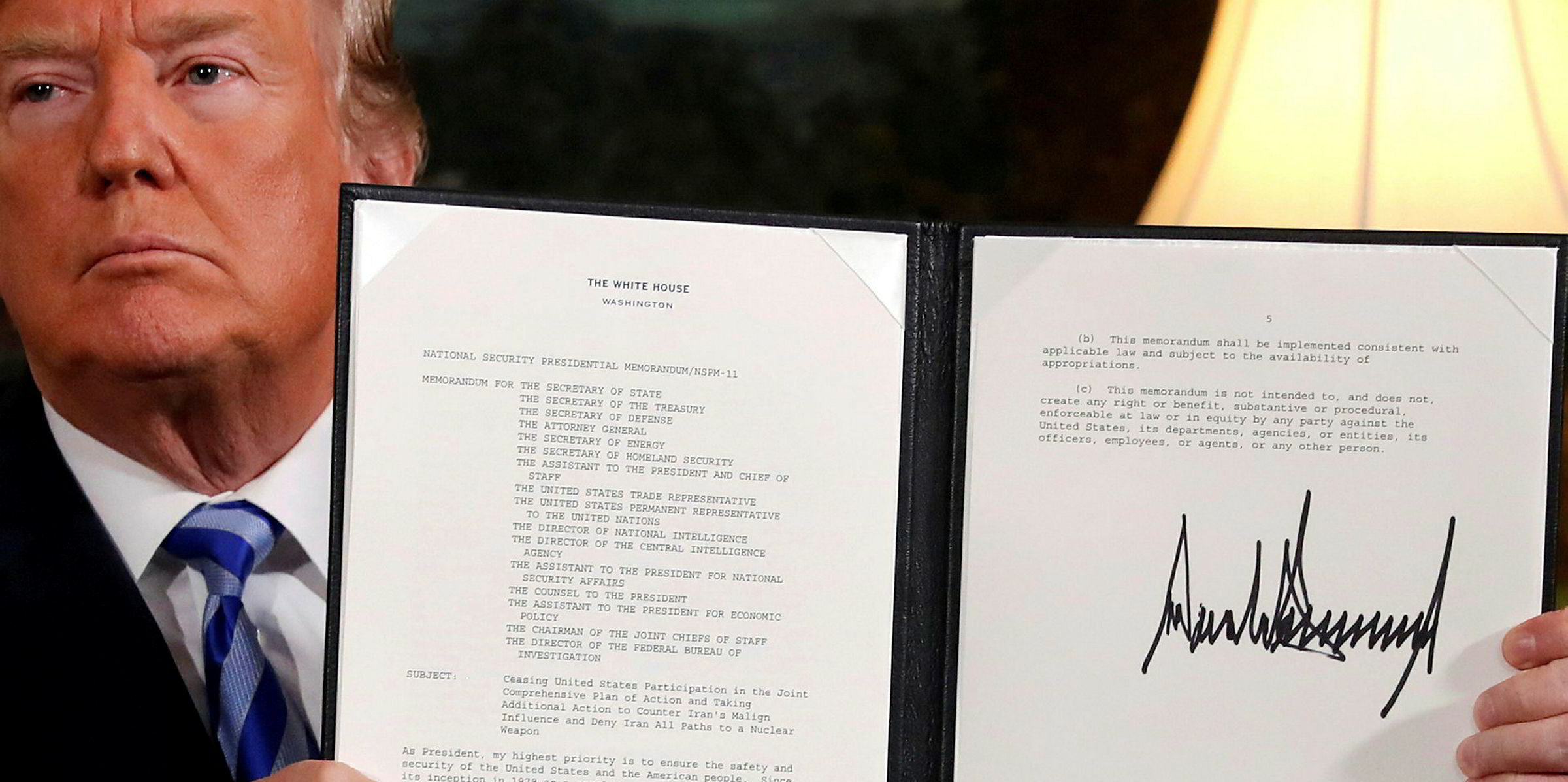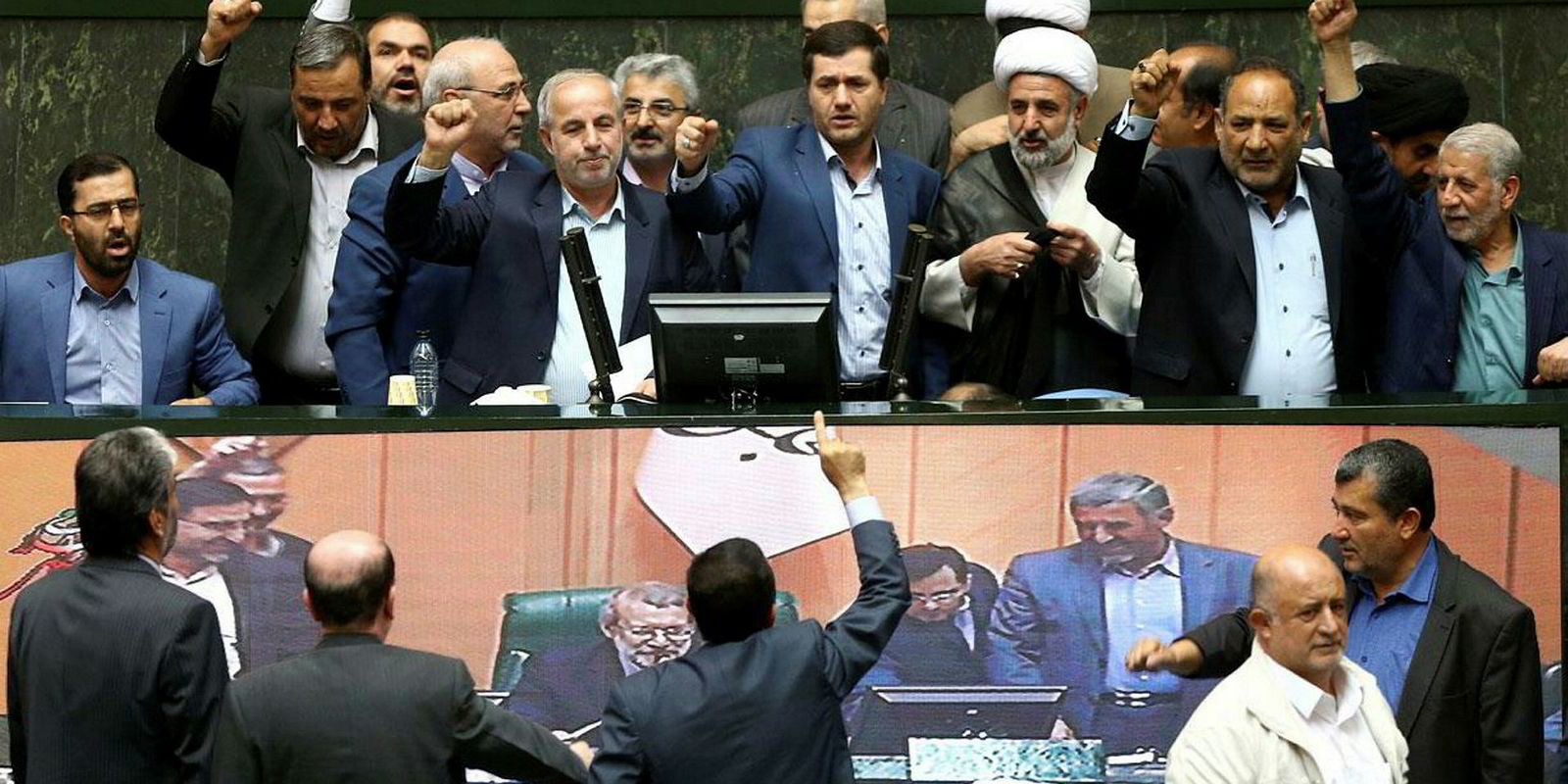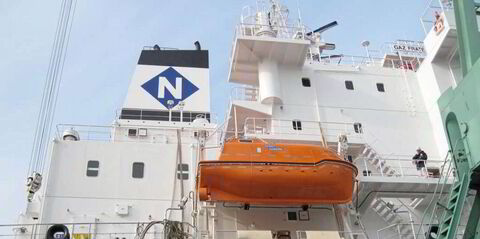Shipping transactions with Iran face fresh upheaval this year in the aftermath of the restoration of US sanctions against the country.
That was the implication after US President Donald Trump formally withdrew his support for the deal that led Iran to stop its nuclear weapons programme in return for renewed access to global markets.
The agreement, known formally as the Joint Comprehensive Plan of Action (JCPOA), repealed the sanctions that stymied the country’s energy and shipping businesses.
Iran has tried to re-enter the world stage since the JCPOA came into effect in 2016. National Iranian Tanker Co (NITC) put out a tender for VLCC and MR tanker newbuildings last October, while Islamic Republic of Iran Shipping Lines (IRISL) plans to boost boxship capacity in the Middle East-to-Asia trade.
But the US’ decision to withdraw from the JCPOA means that US sanctions will resume on IRISL, NITC and other companies linked to shipping, energy or trade.
Any business dealings with Iranian-linked entities face a six-month wind down, with sanctions being formally imposed by early November.
Non-Iranian companies taking part in those and other projects will now have to determine whether they are at risk, said Blank Rome partner Matthew Thomas.
That means that European banks and insurers that do operations with Iran can be potentially cut off from doing business with US entities through secondary sanctions, Thomas said.
"If you do transactions with Iran's central bank or that benefit Iran's crude oil exports, the secondary sanctions mean the administration is going to cut off your ability to deal with US banks," Thomas said. "Especially for banks, secondary sanctions create a huge amount of risk."
Bruce Paulsen, a partner at law firm Seward & Kissel, said the US' decision to not renew the JCPOA means maritime businesses will need to dust off their risk policies prior to January 2016, when the agreement came into effect.
He said that secondary sanctions can mean European or Asian businesses that choose to deal with Iran can be barred from doing transactions in US dollars.
Paulsen said the US government "is using its power over the US dollar".
"In the most extreme case, you could be shut out of doing business in the US dollar," he said. "That's a pretty serious sanction."
Paulsen added that financiers to shipping, companies that have foreign subsidiaries that do business with Iran, and shipowners and charterers that make port calls on Iran are all at risk of sanctions.
In a bid to thwart sanctions from hurting their domestic companies, some European governments passed "blocking statutes", which essentially bar domestic outfits from complying with US sanctions, Thomas said.
"Some companies might be caught in a bind between the US sanctions and their own blocking statutes," he said.
But he added that the flexibility shown by the Trump administration in previous international issues, such as steel tariffs, may be a positive. The six-month wind-down period for trade deals with Iran could allow both sides a window to come up with a new proposal.
"They are offering some runway to negotiate a better deal and possibly reinstate [the] JCPOA," Thomas said.




